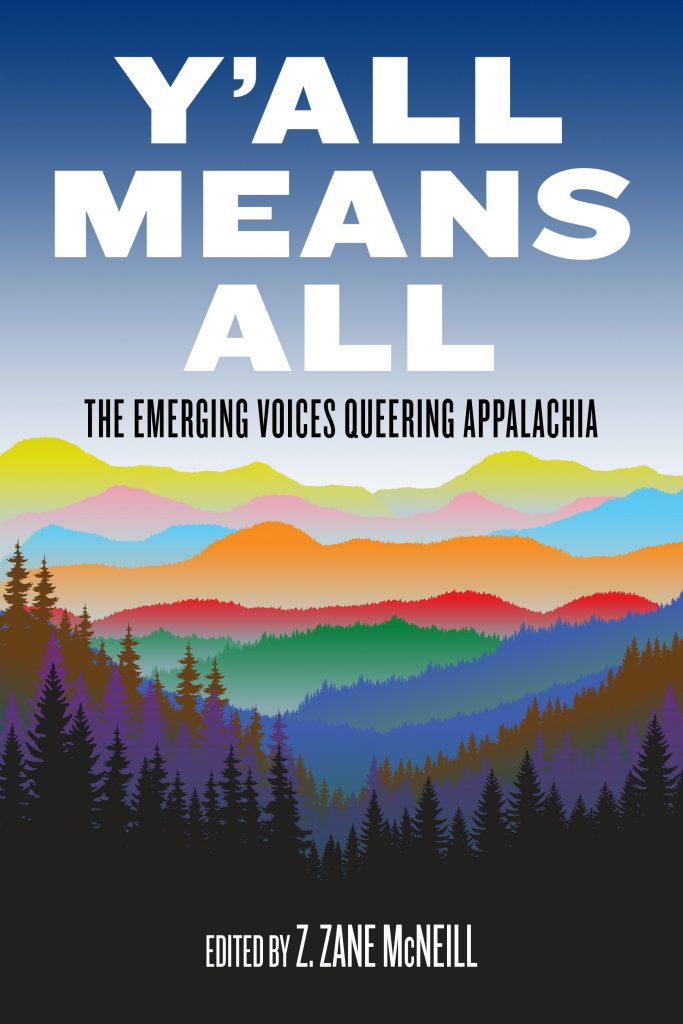Why you wrote this book and why it’s important?
In 2018, I was still mostly closeted. I had just started a Master’s degree in Budapest, Hungary and didn’t feel safe enough to be out because of its “illiberal” (i.e. neo-fascist) government. Despite that political context, my experience with the gender studies department of Central European University introduced me to a range of critical theory and gave me a new vocabulary in which to understand power, identity, and resistance. During this time, Queer Appalachia’s zine Electric Dirt came out. While I had started to feel accepted and understood by the scholars writing the queer theory articles I was assigned, Electric Dirt was the first time I found a queerness in my own tongue. I had felt so isolated and alienated by metronormative LGTQIA+ culture and uncomfortable embracing queer theory’s conceptualization of queerness which has struggled with its inherent classism. Electric Dirt and its language of queerness felt like coming home. It inspired me to start my own zine community, Marx in the Mountains. It was that community that inspired me to turn our conversations into a book collection and many of the connections I made through Marx in the Mountains are voiced in this book. Y’all Means All also is part of the genealogy of Appalachian’s reaction to J.D. Vance’s Hillbilly Elegy (What You’re Getting Wrong About Appalachia and Appalachian Reckoning: A Region Responds to Hillbilly Elegy), queer theory’s increasing interest in rurality (i.e. Queering the Countryside: New Frontiers in Rural Queer Studies), and the history of Appalachian Studies scholars archiving Appalachian histories of resistance (i.e. Fighting Back in Appalachia). This collection is so personal to us and we have grown so much since we started working on it. The sub-title of this collection is “emerging voices” but really it should be “erupting voices.”
The chapters in this collection are not limited to reacting to stereotypes of Appalachia from outside the region, but explore the revolutionary work by queer Appalachians themselves that has been done historically and continues to be accomplished by activists in the region. Not only is this text important to Appalachian Studies scholars or queer theorists, but it offers a toolkit for organizers from outside the region in their fight for social change as well. In many ways, this text is practical but it is also poetic and invites queer folks to dream what a just future for the region and the world could look like.
Who should read this book?
The audience of this manuscript are organizers, teachers, scholars, changemakers, and writers who are part of the struggle for a more equitable world. We are also hopeful that this book will fall into the hands of media pundits, policy makers, and scholars from outside the region who have continued to write Appalachia off as a sacrifice zone or a scapegoat.
Where do we go from here?
The voices in this collection offer many ways forward towards economic and environmental justice, disability and queer liberation, and ways in which to target and begin to dismantle the structures whose roots are the base of our collective oppression. Appalachian queer resistance is a testament to the tools we have used for generations to survive and thrive. These tactics of social change are offered in the pages of this collection and should be adopted by revolutionaries within and outside of the region. The contributors of this collection are optimistic that together we can tear down the pillars of cisheteropatriarchy, white supremacy, and capitalism.







